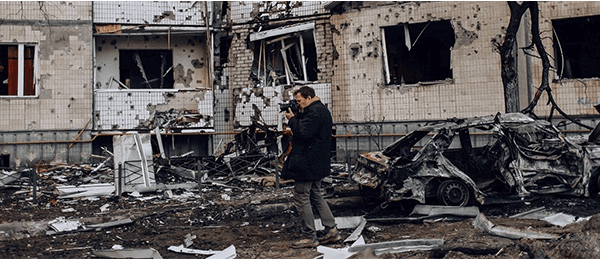|
Monday, May 23 // 4–5:30 p.m. (ET)
This panel highlights three books. First, Christopher Goscha takes readers from the outbreak of fighting in 1945 to the epic battle at Dien Bien Phu and shows how Ho transformed Vietnam from a decentralized guerrilla state based in the countryside to a single-party communist state shaped by a specific form of “War Communism.” Shawn McHale shows how broad swaths of Vietnamese people were uneasily united in 1945 under the Viet Minh Resistance banner, all opposing the French attempt to reclaim control of the country. Finally, in Drawn Swords in a Distant Land: South Vietnam's Shattered Dreams George Veith showcases the rise and fall of South Vietnam.

Tuesday, May 24 // 10–11:30 a.m. (ET)
As the election looms closer, the stakes for Brazil’s democracy, as well as its economic trajectory, are increasingly high. What is the current state of the race? What are the key issues and indicators to watch for in the coming months? How would Bolsonaro respond to a defeat and what would be his options in such a scenario? And what would be the policy priorities under a new Lula or Bolsonaro government?

Wednesday, May 25 // 10–11:30 a.m. (ET)
The Middle East Program and History and Public Policy Program convene a panel to explore the meanings and manifestations of statelessness in the Middle East. Expert historians and panelists will examine case studies of stateless peoples across the twentieth century and into the present day to understand its impact on regional security, politics, and societies. What has statelessness looked like for different Middle Eastern populations? What political ramifications has it had for the communities themselves and the region as a whole?

Wednesday, May 25 // 10–11:30 a.m. (ET)
Join the Wilson Center’s Maternal Health Initiative, in collaboration with the Secretary’s Office of Global Women’s Issues (S/GWI), for a panel discussion on the role of masculinities in international security issues. Panelists will examine how ideas about masculinities define peacekeeping operations and more generally peace processes and mediation efforts; and develop policy recommendations for national and international actors.

Wednesday, May 25 // 1–2:00 p.m. (ET)
How can Latin America’s fast-growing fintech sector help solve stubborn challenges in Latin America such as income inequality? Will Latin America’s “digital divide” inhibit the future growth of this dynamic sector? What laws and regulations will support this sector’s expansion and maximize its social benefits? Join the Wilson Center’s Latin American Program to explore the potential contributions from the region’s fintech revolution.

Wednesday, May 25 // 4–5:30 p.m. (ET)
This book tells the story of how the oldest mass party in the world contended for power and what its leaders did with it when they won. The aims and methods of Democrats have evolved, inevitably, over the past two centuries. But one theme has endured: they have insisted that the economy should benefit the ordinary working person, whether farmer or wage earner, and that governments should institute policies to make that possible—and to resist those that did not.

Thursday, May 26 // 9:00 a.m.–12:00 p.m. (ET)
Join the Wilson Center’s Korea Center for a special rollout event on the publication of Two Presidents, One Agenda. This briefing book contains memos from both American and Korean policy experts and policymakers offering President Biden and the new South Korean President, Yoon Suk-yeol, specific policy recommendations to address the most significant security and economic challenges the two allies face.

|





